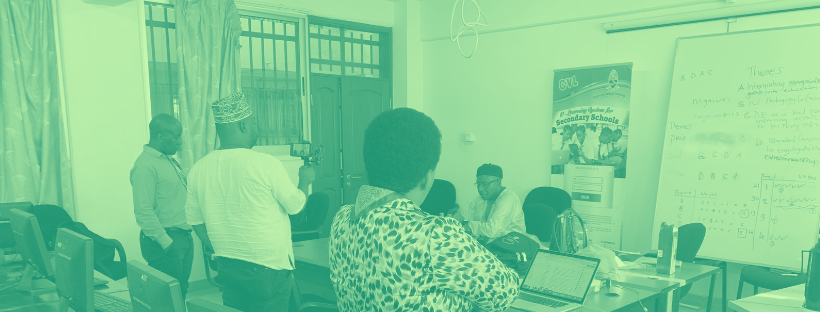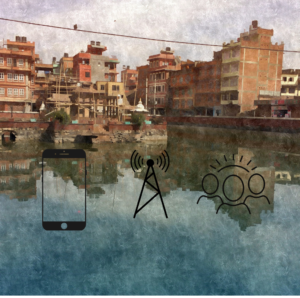How is digitalization transforming international development themes and practice? The intersections of tech, policy pressure, and education

Michael Gallagher, Centre for Research in Digital Education
The practices of education the world over, and particularly in development contexts, are increasingly entangled in a network of global actors and agents: supranational and national policies and strategies such as the Sustainable Development Goals; non-government organisations (NGOs) that interpret and accelerate these policies; and commercial organisations wanting to capitalise on perceived gaps in local educational capacity. Encouraged by the scaled targets of SDG4, education is being renegotiated through an explicit, seemingly inexorable link to technology, an explicit call to rapidly construct technological markets for education, and potentially an erosion of local educational autonomy as a result.
Low-cost, for-profit schools, MOOCs, and reinforcing divides
Many examples exist, but for-profit educational systems like Bridge International Academies in sub-Saharan Africa and South Asia (Riep, 2017), their emphasis on scripted curricula and digital tablets, and their role in potentially eroding local educational autonomy, stand out. MOOCs are another: technology framed as a transparent instrument for educational export, keeping (largely Western and Northern) curricula, pedagogy, and values intact while they are broadcast to a global population assumed to be in deficit. The ghosts of high profile projects like One Laptop Per Child loom large in the imagination of those working in digital development in education. Technology can engender commercial imaginaries that can augment educational and colonial divides. This includes an emphasis on scale, lower-cost points, and overall efficiency to remove the ‘messiness’ of education. This has cascading impact on the types of pedagogy being promoted therein where education becomes a transactional matter of disseminating content rather than a localised, highly situated interaction between students and teachers.

The material of digital education
This digital educational expansion has significant material implications. The material of digital education is becoming increasingly bound in issues of climate and environmental justice, captured in e-waste sites like the infamous Agbogbloshie in Ghana (detailed, among other African e-waste sites in Asante et al. 2019), with clear ecological and health concerns (Daum et al 2017); and the extraction of conflict minerals for technological development. The future of digital education in development is inexorably bound in this climate crisis and attendant issues of social justice.
What are the alternatives?
But if not this increasing reliance on commercial imaginaries to satisfy ambitious development goals, then what? What would be the characteristics of digital education that isn’t reliant on commercial, ever surveilling digital architecture? Might the digital practices of developmental education be aligned with open technological systems that are readily deployable and align with the lived experiences of those that are using them? Might they involve decolonised and co-designed digital learning spaces, and measures of governance around (educational) data and digital sovereignty? Would rights to repair sit alongside community spaces for deliberation and adaptation of technologies be explicit in their constitution? Might community-owned and operated networks more equitably serve this growing territory of digital education? Alternatives exist, if we allow ourselves to look beyond the discourses of scale, efficiency, and cost.
References
Asante, K. A., Amoyaw-Osei, Y., & Agusa, T. (2019). E-waste recycling in Africa: Risks and opportunities. Current Opinion in Green and Sustainable Chemistry, 18, 109-117.
Daum, K., Stoler, J., & Grant, R. (2017). Toward a more sustainable trajectory for E-waste Policy: A review of a decade of E-waste research in Accra, Ghana. International journal of environmental research and public health, 14(2), 135.
Riep, C. B. (2017). Making markets for low-cost schooling: the devices and investments behind Bridge International Academies. Globalisation, Societies and Education, 15(3), 352-366.




Recent comments